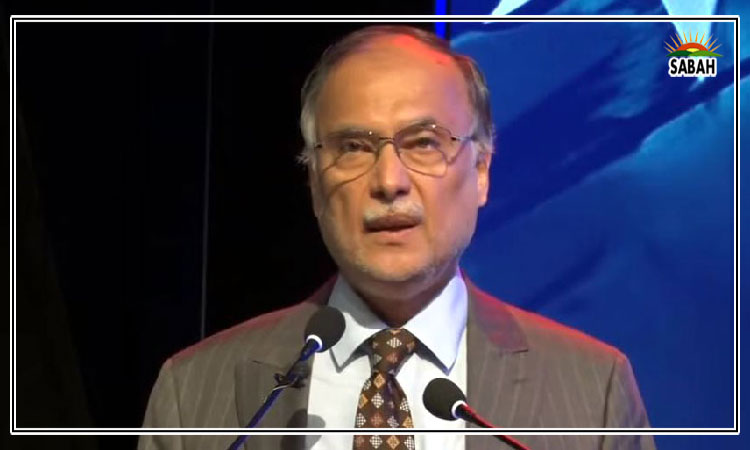Work or populism — choose! …. Farrukh Khan Pitafi
Hidden away on a small street off Regent Street near Oxford Circus in today’s London, there is a little luxury item shop called ‘The East India Company’. It is no coincidence that Sanjiv Mehta, an Indian British originally from Gujarat, now owns the company. The gentleman acquired the brand painstakingly bit by bit over a period of time and ostensibly with the help of Indian billionaire Anand Mahindra. If you think it is just a routine business acquisition, look again.
Between 1600 and 1856, India knew nothing but gross abuse, violence and pillage at the hands of the original company by this name. Today’s Indians may happily post pictures of the rebooted company on their socials, but reviving the name of a monster that has been dead since 1874 would look like a cruel joke to the unattached. It is like a descendant of a survivor of Ted Bundy’s crimes decides to launch a women’s luxury item business with his name. But the trauma so deeply inflicted upon a nation is seldom deterred by the cruelty of a joke.
Today’s Britons have little to do with the crimes committed by the Company. Not unless you believe in the genetic transfer of guilt. Nor does today’s India resemble anything like the sorry place it was under foreign colonialists. But this reveals the indelible scars left on a nation’s psyche by economic exploitation and subjugation.
Remember that the Company’s aggressive mercantilism was a form of capitalism. This is where Adam Smith’s invisible hand revealed its limitations. This moderating force was working within Europe, where other powers were present to tame the British EIC. But the world outside Europe was fair game. When unfettered mercantilism goes out into a world that international relations realists call anarchical, it wreaks so much havoc that its scars keep messing up the victim nations for centuries.
We need to have this conversation when the centre and the traditional right in liberal democracies seem to have imploded and their place taken by the xenophobic far-right. If it is a choice between the far right and the left, which side should you choose and why? Also, does this mean a permanent realignment or a temporary one?
As these lines are being written, the UK’s Labour Party has just won the election by a landslide. After 14 years of gross neglect and a series of political self-immolations the Tories have lost power. Sadly, the optics are all wrong, and this merits a brief discussion. On the face of it, an ethnic minority premier had led the Conservative Party into its worst defeat in history. And given that it was not the Labour but a rabidly anti-immigrant Reform UK that brought the Conservative Party to its knees, pundits are likely to take the wrong message from it. I am not denying the existence of a xenophobic sentiment in the UK. Every country has it. But it is just a fringe. The Tories lost because their successive leaders in the past 14 years were viewed as an out-of-touch and out-of-their-depth bunch of rich men and women. However, the explosion of anti-immigrant populism in the West can no longer be ignored. A few years ago, I quoted Francis Fukuyama on populism’s three distinct characteristics. That it thrives by way of exclusion. That it is usually centred around a charismatic leader, and that it offers short-term fixes for long-term problems. This would explain why both Marine Le Pen and Nigel Farage, after their cleanup acts, are regarded as more approachable and genuine than the traditional elites by so many people.
So far, analysts have blamed foreign powers for this unhinging of the political order. The Western media blames Russia for most of it. The leaders of these movements help this case by showering Putin with high praise. I have commented on how India and Israel have played a role because only trusted allies can game the system like no hostile force can. But there is something bigger at play here. A game in which even Russia, India and Israel are just willing pawns and victims.
If Trump world’s Project 2025 serves as proof of something, it is that these populist movements are mere shills of mega-corporate interests. Ask yourself why most of them are in a great hurry to cut regulations and government jobs. Thomas Piketty, in Capital in the Twenty-First Century, tells us that the difference between the rich and the poor has increased beyond anyone’s imagination. This gap is a product of corporate greed. Certain businesses have grown so big that even states find it difficult to regulate them. So, these companies have found a sledgehammer to destroy what is left of the administrative state. They choose xenophobic populism as the platform because it speaks to the basest instincts of man. Otherwise, as English political philosopher John Gray puts it, liberated markets constantly dissolve cultures around them. So, what these movements are preserving is not culture but the rich’s right to exploit what is yours.
If these were ordinary days, you could leave a correction to the ebb and flow of time. But mankind is on the cusp of a vast transformation. Already there is incredible distress about AI and automation’s ability to take your jobs. Some believe that an impact will be felt within the next five years. Add to it the effects of climate change, which are getting only too visible.
At this time, cutting regulations and public sector jobs is like handing over the demolition switch of all buildings in the world to Osama bin Laden. In ordinary circumstances, the private sector ought to be the engine of job creation. But a business cares more about capital than labour. If they can make more profit by replacing human labour with AI, they will do it in a heartbeat. So, in our ideological zeal for reform, we might be asking people to let go of the jobs they have in exchange for the jobs that will most likely cease to exist in the next five to ten years and making their abolition easy by cutting regulations at breakneck speed. Daron Acemoglu and Simon Johnson, in their timely book on the subject, titled Power and Progress: Our Thousand-Year Struggle Over Technology and Prosperity, posit that for technology to be beneficial to society and avoid causing unemployment, inequality or poverty, it needs to be controlled by state regulations and social power through instruments like trade unions.
This calls for a tactical pause. Until people and states figure out how to handle the emerging challenges, this rightward shift is only suicidal. So, for the next ten years, a leftward push works as mankind’s best insurance policy. Civil society and the free press have the role of the watchdog against the risks of authoritarianism and bankruptcy. Once solutions to mankind’s big problems are found, we can return to our respective ideological positions.
Courtesy Express Tribune












